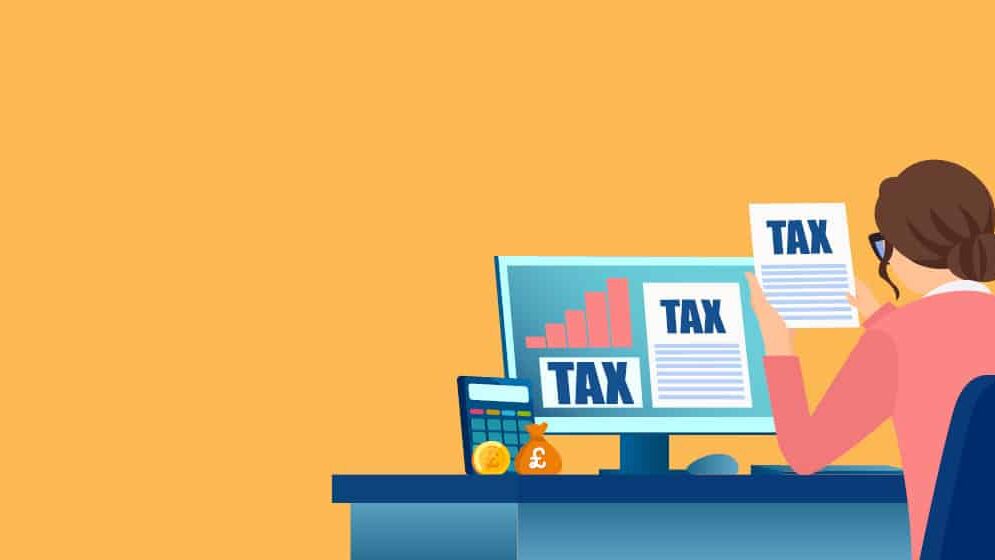
September 2022 Tax News
With just days until our new leader is announced, the fires continue to spread through the global economy and with no small amount of irony, there is an abundance of fuel to stoke those fires. But what is life really like on the ground? Looking at our most recent survey in August, there was still cause for cautious optimism however, one month on and with the continued spiral of energy costs spiking inflation across the board this is certainly a time to be in total control of your figures and to understand your tax position. Don’t hesitate to talk to us if you would like advice on how to best navigate these tricky, but opportunistic times.
BACK TO SCHOOL – CHILDCARE VOUCHERS OR TAX-FREE CHILDCARE ACCOUNT?
There continues to be poor take-up of the Government’s Tax-Free Childcare Accounts which provide a 25% subsidy towards the cost of childcare.
The system operates by topping up savings of up to £8,000 per child by 25%, potentially an extra £2,000 from the Government to spend on qualifying childcare. The scheme applies to children under 12 and the account can be used to pay nursery fees, breakfast clubs, after school clubs and registered childminders. In contrast childcare vouchers may be used to pay for childcare up to age 16. Despite the PAYE and NIC advantages not all employers provided childcare vouchers.
Tax free childcare accounts are available to both employees and the self-employed. To be eligible the parent generally needs to be working and earning at least the National Minimum Wage or Living Wage for 16 hours a week on average. For a 3 months period they need to earn at least £1,976 and they are not eligible if their adjusted net income is more than £100,000 a year.
INTERACTION WITH CHILDCARE VOUCHER SCHEMES
Tax-free childcare accounts will gradually replace childcare voucher schemes as no new schemes could be set up after 4 October 2018. Those within voucher schemes continue to be eligible until their child is aged 16, provided the employer is willing to continue operating the scheme. Many organisations provided the vouchers by way of salary sacrifice and there were tax and NIC advantages. However, with many employees working from home during the pandemic and the move to hybrid working many families found that they were not using all of their vouchers and chose to leave the scheme.
Note that the two schemes are mutually exclusive, and employers must stop giving their employees childcare vouchers with income tax and NIC relief if the employee informs them that they’ve started using the Tax-Free Childcare scheme.
The employer may need to stop or change the employee’s salary sacrifice arrangement and must also update the employee’s contract and their payroll software.
SELF-EMPLOYED NEED TO PLAN FOR BIG TAX BILLS IN 2023/24
The changes to the basis of assessment of self-employed profits are scheduled to change from 6 April 2024. The new rules mean that profits (and losses) will be assessed based on the amounts arising between 6 April and 5 April instead of the profit/loss of an accounting period ending in the tax year. This means that where the business accounts do not coincide with tax year the profits or losses will need to be apportioned. This is intended to coincide with the start of Making Tax Digital for income tax.
Transitional rules proposed for the previous 2023/24 tax year could result in large tax bills for some sole traders and partners, particularly those with an existing 30 April year end. The profits of year ended 30 April 2022 would be taxed in 2022/23 under the current rules with 2024/25 taxing profits arising between 6 April 2024 and 5 April 2025 under the new rules. But what about 2023/24?
The profits taxed in 2023/24 would be those for year ended 30 April 2023 plus the period 1 May 2023 to 5 April 2024 – in total 23 months profits!
The good news is that there would be a deduction for “overlap relief” (as much as11 months) which typically arose when profits were taxed twice at the start of the business – but those will often be much lower than the extra 11 months being taxed in 2023/24.
The transitional provisions provide for the “excess” profits to be spread over the next 5 tax years to smooth out the excessive tax bill.
ADVISORY FUEL RATE FOR COMPANY CARS
The figures in the table below are the HMRC suggested reimbursement rates for employees’ private mileage using their company car from 1 September 2022. Remember that provided all private fuel is fully reimbursed the fuel benefit does not apply.
| Engine Size | Petrol | Diesel | LPG |
| 1400cc or less | 15p (14p)
|
9p | |
| 1600cc or less | 14p (13p)
|
||
| 1401cc to 2000cc | 18p (17p)
|
11p
|
|
| 1601 to 2000cc | 17p
(16p)
|
||
| Over 2000cc | 27p
(25p)
|
22p
(19p)
|
17p
(16p)
|
Where the employer does not pay for any fuel for the company car these are the amounts that can be reimbursed in respect of business journeys tax free.
Where there has been a change the previous rate is shown in brackets.
Note that for hybrid cars you must use the petrol or diesel rate. You can continue to use the previous rates for up to 1 month from the date the new rates apply.
PROPOSED CHANGES TO CGT ON SEPARATION
In response to a recommendation by the Office of Tax Simplification the Government have introduced draft legislation for inclusion in Finance Bill 2023 that extends the no gain/no loss rule when a couple separate.
Under the current rules the no gain/no loss rule that means that there is no CGT on transfers of assets between spouses or civil partners only applies up to the end of the tax year in which they separate. The divorce settlement or court order that transfers assets between the couple often takes place many months after the separation and may lead to CGT being payable.
The main change proposed is that separating spouses or civil partners will be given up to three years after the year they cease to live together in which to make no gain/no loss transfers. Most divorces would be concluded within this period.
No gain/no loss treatment will also apply to assets transferred as part of a formal divorce agreement.
DIARY OF MAIN TAX EVENTS
SEPTEMBER / OCTOBER 2022
| Date | What’s Due |
| 1 September | Corporation tax for year to 30/11/21 unless pay by quarterly instalments |
| 19 September | PAYE & NIC deductions, and CIS return and tax, for month to 5/9/22 (due 22 September if you pay electronically) |
| 1 October | Corporation tax for year to 31/12/21 unless pay by quarterly instalments |
| 5 October | Deadline for notifying HMRC of chargeability for 2021/22 if not within Self-Assessment and receive income or gains on which tax is due |
| 19 October | PAYE & NIC deductions, and CIS return and tax, for month to 5/10/22 (due 22 October if you pay electronically) |
Guide to selling your business
Your simple guide to helping you maximise the value in your business.
Sign up to receive alerts
Call us on 01628 770 770 for a no-obligation chat
You may also be interested in...
May 2024 – Tax News
It’s full steam ahead as we head towards summer and as ever there’s always something interesting to report on the tax front. WANT TO BE PART OF BETA TESTING OF MTD FOR INCOME TAX? Although making tax digital income tax self assessment (MTD ITSA) is…
Property Newsletter – May 2024
Welcome to our monthly newsletter for property landlords. We hope you find this informative and please contact us to discuss any matters further. Furnished Holiday Lettings: Reaction In Budget 2024, which took place on 6 April, the Chancellor…
New Head of Corporate Finance at Wilson Partners
We’re excited to announce some changes within the Corporate Finance Team. As of March 2024, Adam Wardle will be leading the drive to acquire businesses similar to ourselves, with like-minded team and a culture that will complement our own. Whilst…



